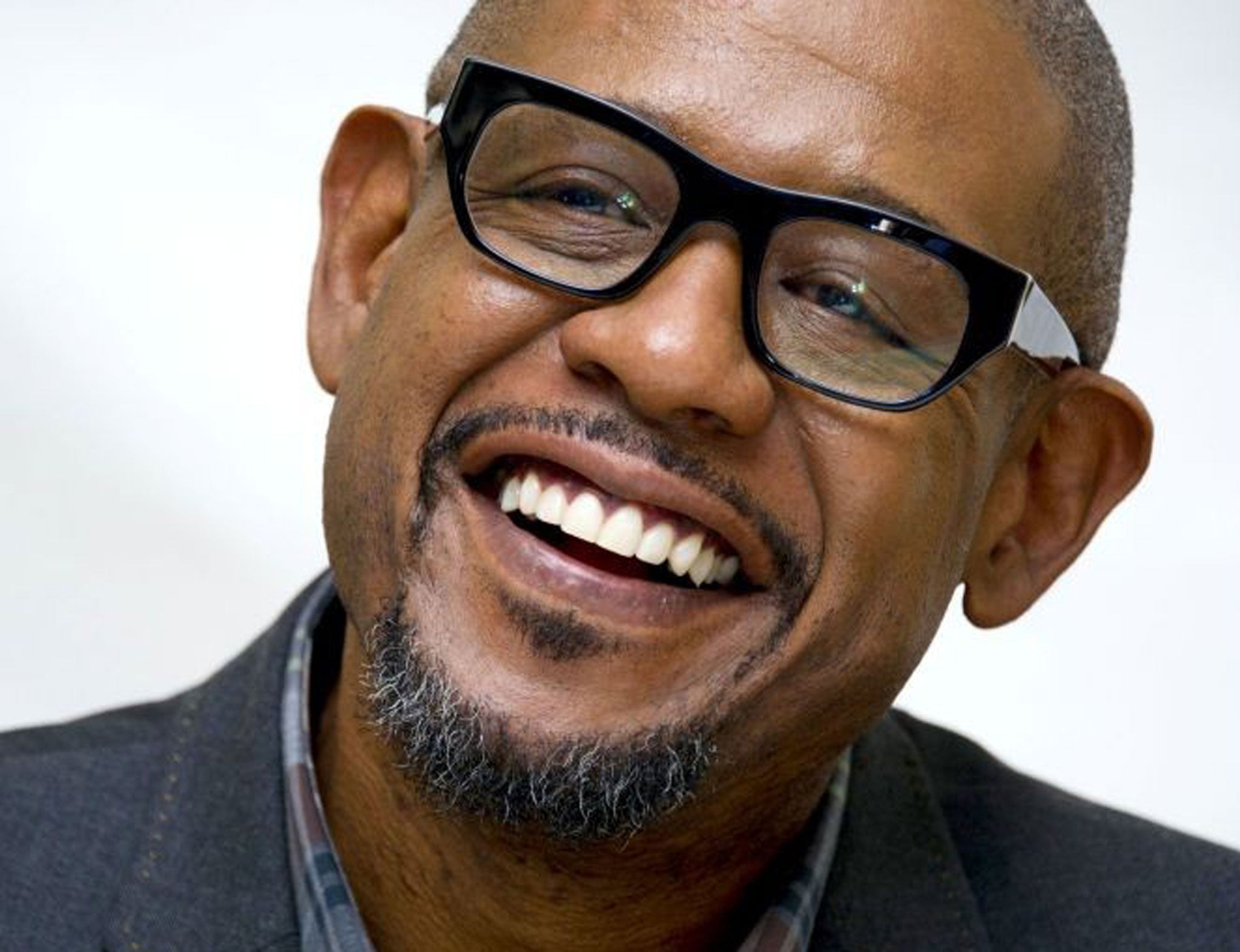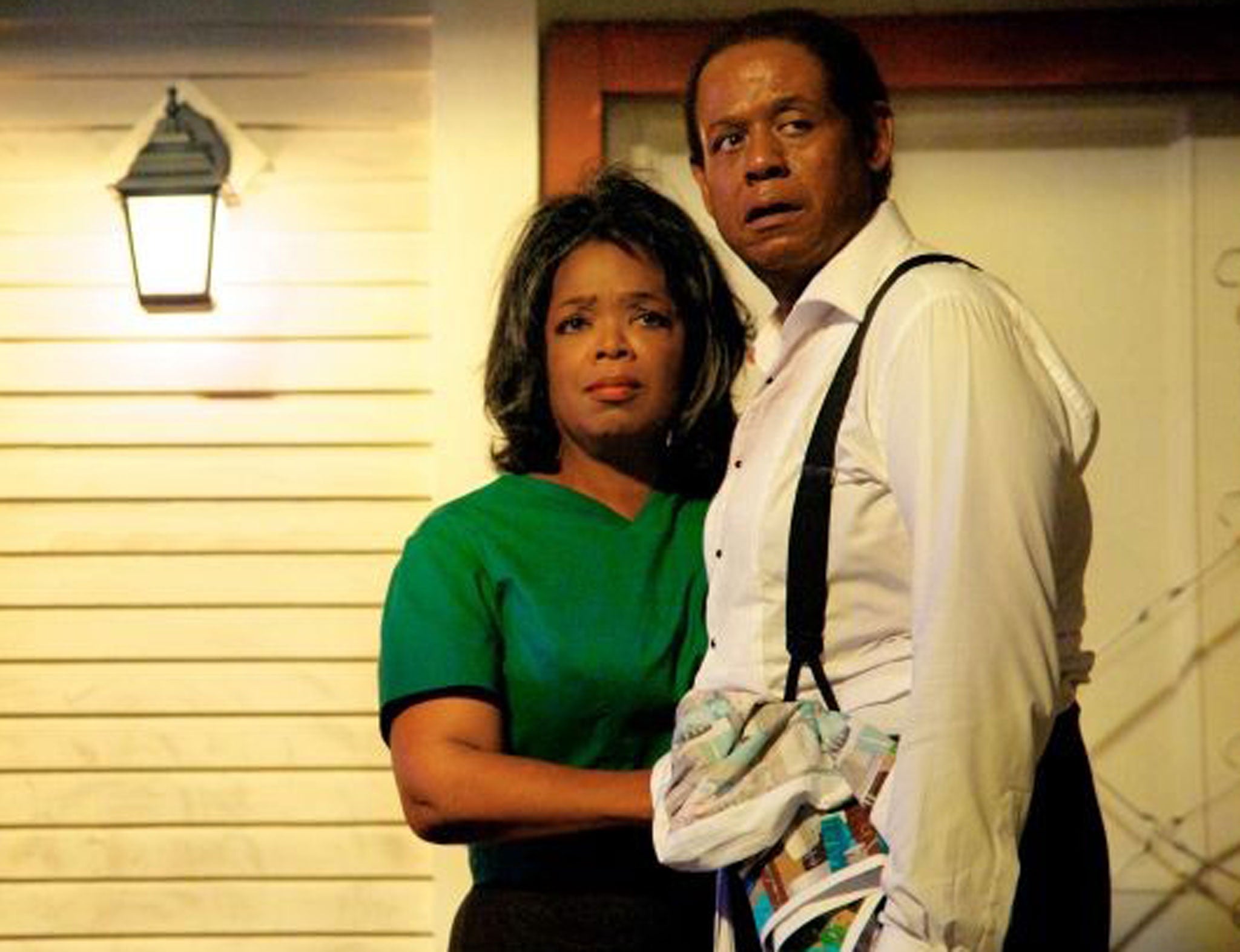Interview: Forest Whitaker - The star of The Butler refused an offer to play President Obama
The actor is part of the US President's Committee for Arts and Humanities

Your support helps us to tell the story
From reproductive rights to climate change to Big Tech, The Independent is on the ground when the story is developing. Whether it's investigating the financials of Elon Musk's pro-Trump PAC or producing our latest documentary, 'The A Word', which shines a light on the American women fighting for reproductive rights, we know how important it is to parse out the facts from the messaging.
At such a critical moment in US history, we need reporters on the ground. Your donation allows us to keep sending journalists to speak to both sides of the story.
The Independent is trusted by Americans across the entire political spectrum. And unlike many other quality news outlets, we choose not to lock Americans out of our reporting and analysis with paywalls. We believe quality journalism should be available to everyone, paid for by those who can afford it.
Your support makes all the difference.In The Butler, Forest Whitaker plays Cecil Gaines, a character loosely based on Eugene Allen, a butler who served at the White House from 1952 until 1986. The name change is down to director Lee Daniels taking liberties with dates, and giving his butler a torrid domestic life – a murdered father, an alcoholic wife and a son at the heart of the Civil Rights Movement.
The fact that Whitaker is no stranger to the White House demonstrates just how much times have changed from the era depicted in the film. "I was on the Urban Policy Committee for the current President at the beginning of his first term," says the 52-year-old. "I'm now on the President's Committee for Arts and Humanities. I'm not policy making, but I'm interested in political engagement. I have a foundation called PeaceEarth and we are currently working in the Sudan, where we are training youths in conflict resolution and peace. We are about to start work in Mexico." Whitaker is also the Unesco ambassador for Peace and Reconciliation.
While many claim that President Obama hasn't lived up to the heightened expectations that came with his election as the 44th President of the United States, Whitaker remains firmly behind his man. "I support the President. I think the landscape of the country is so vast; there are so many areas to deal with."
Moreover, Whitaker reveals that he's already been asked to play the first black president in a film. "I was asked if I would play President Obama in My Name is Khan. I didn't feel comfortable with doing it. Partly because he was still in office, but mainly because I felt that there were other people who were better suited to doing the role." Karan Johar went on to cast The First Family star Christopher B Duncan in the role, but the actor Whitaker would like to see play Obama is "Will Smith; I think he would be really interesting."
One of the joys of The Butler is seeing various actors essaying White House incumbents. Daniels has made some interesting and counterintuitive choices. Robin Williams plays a contemplative Eisenhower, James Marsden is Kennedy, Liev Schreiber essays Johnson, John Cusack is a deranged Nixon – and Alan Rickman and Jane Fonda mimic Ronald and Nancy Reagan.
Whitaker is almost apologetic when he talks about Kennedy, the President in the film he most admires. "I think that Kennedy was a really interesting figure. I know he is the darling of everybody – but I didn't know about all the things he said, and now I find myself quoting him quite often."
The actor tried to speak to staff working in the White House to prepare for the role, but says that he met with limited success. "It's very difficult when you're dealing with butler staff, because they are the ones who have the most intimate knowledge of what is going on. They are really a secretive society. They know what's going on better than any of the secretaries. They would know if the President spanked his kids or not. I was able to get some people to help me out and talk to me."
The upstairs/downstairs set-up has some kinship with British period dramas. "It's kind of like that. I like them. I can't say I follow it, but I've watched Downton Abbey a couple of times and loved it."
There is one conversation in The Butler in which the status of Sidney Poitier is deconstructed. Was he a trailblazer or an Uncle Tom? Whitaker's own view is that, "Poitier opened the doors to so many artists, not just black artists. There is a line that goes from black to Latin to Asian with regards to roles."

Watch Apple TV+ free for 7 days
New subscribers only. £8.99/mo. after free trial. Plan auto-renews until cancelled

Watch Apple TV+ free for 7 days
New subscribers only. £8.99/mo. after free trial. Plan auto-renews until cancelled

Whitaker has been a trailblazer himself. His parents (his father was an insurance salesman and his mother a special-education teacher) moved to South Central LA when he was four, just before the Watts Riots. He went to college on a sports scholarship. He is a big man, both in height and width, and it takes little to imagine him terrorising opponents on a football field. It was these attributes that served him well when he gave an Oscar-winning performance as Ugandan dictator Idi Amin in The Last King of Scotland. Yet he speaks so serenely and calmly that it's no surprise to learn that he came to film through music: he played the trumpet and trombone before singing in musicals at high school. This led to him appearing in a stage adaptation of Dylan Thomas's Under Milk Wood – after which, he knew that acting was his game.
Despite appearing in Amy Heckerling's much-loved Fast Times at Ridgemont High and Martin Scorsese's The Color of Money, his initial years in film were a slog. Roles in the Vietnam movies Platoon and Good Morning, Vietnam would provide his breakthrough. Then, in 1988, came the role that would combine his love of music and acting: playing Charlie Parker in Clint Eastwood's Bird, for which he won the Best Actor prize at Cannes. The notable turns – The Crying Game, Ghost Dog: The Way of the Samurai, Panic Room – kept coming, before he became only the fourth African-American to pick up an acting Oscar in 2007.
Whitaker also has a successful career as a producer. His name appears on the credits of the critically acclaimed Sundance hit Fruitvale Station, a drama based on the death of Oscar Grant III, who was fatally shot by a policeman in San Francisco while out celebrating the New Year in 2009.
"With regard to Fruitvale Station, I believe that character can exist in any city with different cultures and social groups. I care about it because it's a personal story for me, but we could just as easily be talking about Algerians in France. If there is inequality and that equates with colour, then I'm going to deal with it."
Whitaker will next be seen playing a reverend in Kasi Lemmons' Black Nativity, based on the libretto by Langston Hughes. Following that, he plays a detective in the South African post-apartheid thriller Zulu and appears alongside Christian Bale and Casey Affleck in Scott Cooper's thriller Out of the Furnace.
"The theme of inequity, the theme of racial equality, the theme of economic inequality are things that interest me when choosing characters," says Whitaker. "It's important to me because I care about humanity and connecting with humanity."
It's been almost a decade since Whitaker worked as a director. The three films he has helmed – Waiting to Exhale, Hope Floats and First Daughter – have all been female-led. Next year, he tells me, he'd like to go behind the camera again. He's developing two biopics of iconic black figures: Richard Pryor and Louis Armstrong. On Pryor, he says, "Ever since I was a kid, I've been enamoured by his humour and politics. I have his diary. He kept a diary about a lot of stuff and his wife brought it to us."
Nonetheless, he admits that it's a third film about child soldiers in Uganda that is most likely to get made. "I've been working on Better Angels for a couple of years and maybe that's the one that I'll end up doing, because it's small and has an intimate, tiny crew."
'The Butler' is released on 15 November; 'Black Nativity' is released on 6 December
Join our commenting forum
Join thought-provoking conversations, follow other Independent readers and see their replies
Comments